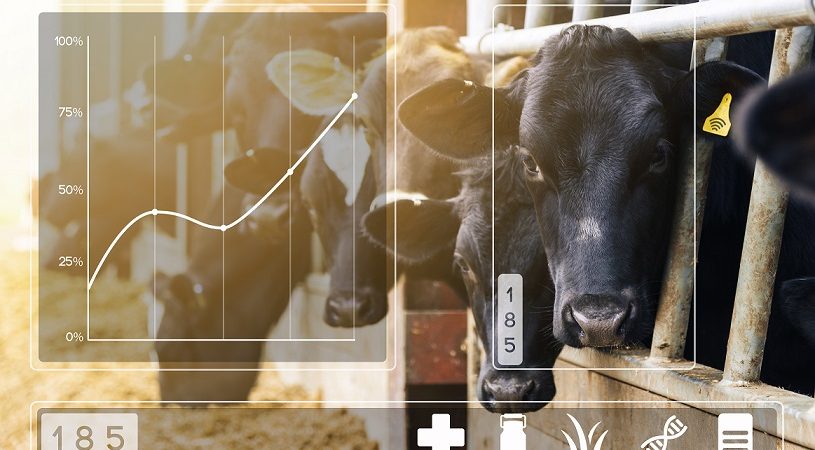Allan Jinesta, Corporate Director of Information Technology at Dos Pinos, shares his insights on how Digital Transformation has impacted the company.

Dos Pinos is a leading dairy producer in Central America and the Caribbean, with more than 900 varieties of products for human consumption and more than 3,000 products for the agricultural sector in Costa Rica, its home country.
Dos Pinos, being a co-operative, has 1,300 associated producers and about 600 associate members.
They have over 5,500 employees in the region who collect 1.6 million liters of milk from partner farms and non-partner producers in Costa Rica, Panama, the Dominican Republic and Nicaragua while exporting to more than 10 markets worldwide, in line with its motto of ‘Always with Something Better’.
The company has advanced in terms of Information Technology and telecommunications.
For example, Dos Pinos has had Oracle as one of its main allies for implementing its cloud strategy and improving its business model, and it has shown growth in recent years.
In addition, the vision of sustainability is rooted in a solid strategy that charts the path to innovation, efficiency and economic, social and environmental commitment to its associates, employees, suppliers, clients and consumers.
Currently, the organization is digitizing its processes and value chain to have greater visibility and generate more value for its customers. However, the tools it had were becoming obsolete, and it represented a risk to the continuity of the business.
The co-operative then looked for a solution that would enable it to support this technological transformation process and considered Oracle ideal to assist.
Oracle WMS as the basis of the transformation
After competing with four other vendors, analyzing the Gartner quadrants, and conducting a very detailed evaluation of the technical, business and operational aspects, Dos Pinos chose Oracle Warehouse Management System (WMS).
In addition, the organization was clear from the beginning that it wanted to work with recognized companies and world-scale tools already developed and tested repeatedly.
Oracle fully met these requirements.
Allan Jinesta, Corporate Director of Information Technology at Dos Pinos, shares his view of how Digital Transformation has impacted this company.
What are the technological challenges for CIOs in the economic sector in the coming years?
For the manufacturing and retail sector, the most relevant challenge, beyond the usual consumer behaviors or the socio-political environment, lies at the origin of the whole chain: The raw material or, to be more specific, the producer.
Population growth, climate change, raw material scarcity, speculation in the transportation sector and other factors mean that precision farming must be the cornerstone that ensures production in the future.
The next priority is optimizing the manufacturing processes with Artificial Intelligence (AI) and the Internet of Things (IoT), which should enable more efficient cycles.
Not far from these priorities, in our industry, the control of logistics becomes the differentiating element to ensure the punctuality of products, both raw materials and finished products offered to consumers – besides obtaining the best cost conditions in transportation.
In this cycle, Data Science is the new business engine – the contextualization of information must be a complement that sensitizes the organization’s Hard Data with the environment, especially today, as an influencer can move the destiny of an organization more than a news service.
The same goes for information that enables AI models to learn and develop business opportunities, taking care not to depersonalize the service. We are technology, but we are human beings first and foremost.
Moving to the cloud is an exclusively technological decision, but in reality, this has a high strategic impact on the entire business.
What impact has the Oracle implementation had on Dos Pinos?
First, moving to the cloud is a strategic business decision, not a technology decision. Technology is the enabler, but for the business, the benefits of agility, versatility and opportunity are difficult to determine in many cases.
It is because the limitations of on-premises models are not determined until some hardware or software limit is reached, when it is too late, considering the damage to service, productivity, or whatever is getting harmed.
To cite an example, we implemented the HCM platform in the first phase in less than four months, and users had the opportunity to see the system up and running from the first month.
In traditional models, including the current reality regarding delivery and transportation of equipment, the opportunity is seen as a loss, considering that just waiting for a piece of equipment takes five to six months plus the time to set up the platform.
Which other changes are being planned to improve the company’s productivity based on this technology implementation?
Dos Pinos is a company that understands and considers technology as a relevant business lever in its strategic model.
Robotization, AI and Solutions as-a-Service (SaaS) models exemplify how technology can bring operational improvements.
Some examples are the robotization of logistics processes that optimize space and reduces the margin of error in operational processes and the Machine Learning models that will enable online decision-making for manufacturing processes and OEE optimization.
The solutions allow IT departments to focus on building only solutions that strategically differentiate the operation, while these SaaS solutions, with appropriate SLAs, maintain normal operational processes.
How does the Oracle platform articulate with your current systems and with your productive ecosystem?
Dos Pinos operates only with vendors with a recognized story and global recognition. Oracle is one such supplier with elements that fit into the building block of solutions. What is relevant for us now is integration to ensure uniformity and control of the flow of information and master data between the solutions.
This project has deep roots in the last decade but seems to continue to expand over time. How has the system prepared your company for the future?
The implementations made together with Oracle and other SaaS vendors are facilitating growth and supporting the agility of Dos Pinos’ processes.
Growth is now dynamic and follows the pace that business dictates, not technological limitations.



